The BRWA Steering Committee is a group of individuals offering viewpoints from many different sectors. The Committee (along with staff members) meets several times a year and decides on the direction of the BRWA. Each member of the Steering Committee is responsible for contributing to the BRWA from the perspective of their sector; they are not speaking on behalf of all members of their sector.
2015-16 Steering Committee
Agriculture
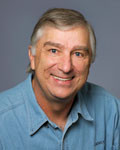 |
Gordon Graves (designate and co-chair) |
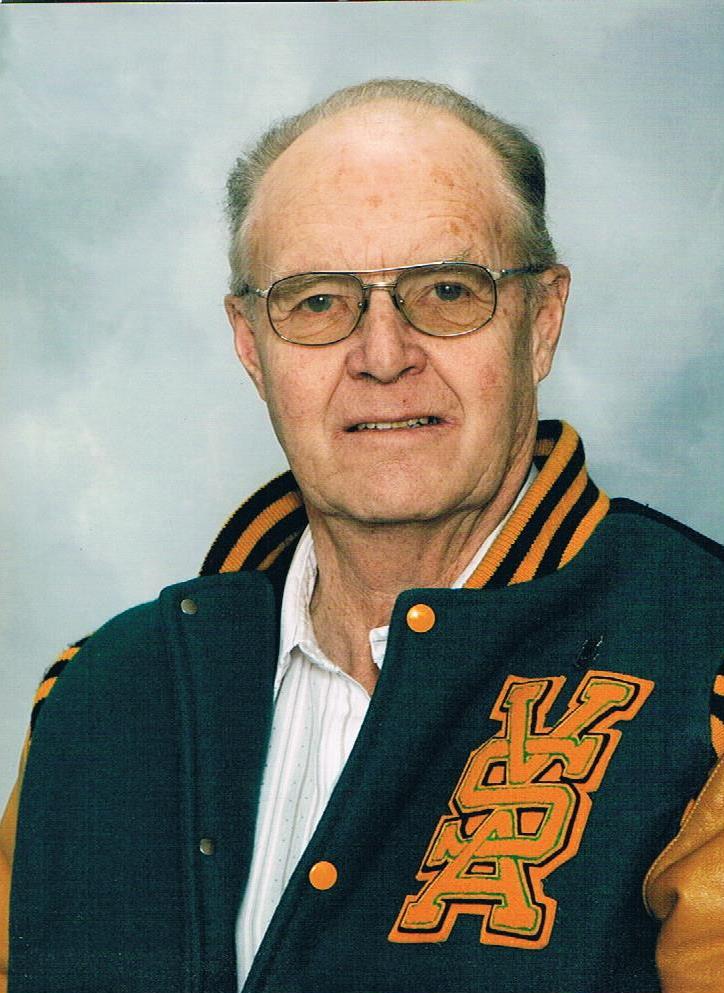 |
Bill Fox (alternate).I started watershed work with the North Saskatchewan Watershed Alliance shortly after NSWA was started. When the Beaver River Watershed was formed, some of the environment people previously with the NSWA, were Directors on the start-up government group for the Beaver River group. I joined with these people to start the Beaver River group. We were the naming committee of the BRWA. When we were a standalone Board, I was welcomed as a member of the Board because of my experience with the NSWA and as I was a landowner farmer in the BRWA area. I own land and farm where Thin Lake is a wet land and lakeshore going toward Moose Lake. My time with BRWA has been very interesting, rewarding, and, sometimes, lots of work but it is very important to the air, land, and water in the area. I enjoy the experience and the work and do look forward to the future of BRWA and the benefit to all people in Alberta’s BRWA area. |
Alberta Environment and Sustainable Resource Development
Abdi Siad-Omar
Community
Harold Ross (designate)
Kathryn Wiebe (alternate)
Community II
Wilf Tomchek (designate)
Donna Padlesky (alternate)
Federal Government
Vacant
First Nations
Vacant
Forestry, Trapping & Recreation
James Gamblin (alternate)
Health
Vacant
Lakeland Industry & Community Association
Delano Tolley (designate)
Mildred Dunham (alternate)
Métis
Duane Zaraska (designate)
Non-Government Organization
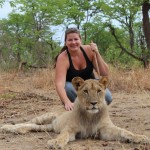 |
Kellie Nichiporik, Lakeland Agricultural Research Association (designate and Executive Treasurer).Kellie Nichiporik has been an active member of the Beaver River Watershed Alliance since 2010, and Co-Chaired the committee from 2011-2013. She became involved with the watershed through her work with Lakeland Agricultural Research Association as the Conservation Coordinator. She is passionate about the environment and enjoys sharing and educating others about stewardship of the land, air and water. This area holds many memories; of coming to Moose Lake for summer camps, hiking, fishing, boating and relaxing around campfires with friends and family. Currently Kellie is the Chair of the Moose Lake Watershed Society, and through this stewardship group has helped with creek restoration projects, tributary nutrient sampling, shoreline education and the program Walking With Moose which is for grade five students of the area to learn about the watershed, value of wetlands and shorelines and forest ecology. Kellie also conducts riparian health assessments, which can be used to better manage areas around the water to protect and improve water quality. Kellie is an avid photographer and gardener. She is passionate about travelling, having lived in both Denmark and Australia; loving to have the chance to experience new cultures and places. Having gone to Africa, the value of water becomes so much more apparent when faced with nations plagued with water borne illnesses and shortages. We are so fortunate to live in an area where we have access to safe, adequate supplies of water. |
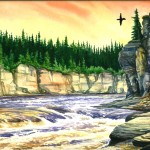 |
Marsha Hayward, Alberta Native Plant Society (alternate).I have a strong childhood memory of standing on the banks of the tannin stained waters of the Hay River, N.W.T. and wondering what lay to the south. Behind me stood the massive Great Slave Lake and my parents had just announced we were moving to Alberta. I wondered then what lay upstream. I was 10 years old. Forty-eight years later I stood again on the banks of another northern river – this time the Slave River in Ft. Fitzgerald. This time facing North. And there I was-wondering how it was that I was back? This time I was no longer a child; but an informed adult member of a provincial WPAC working with many other people to document our watershed resources and create an integrated watershed management plan. A 75 year old Dene elder was standing beside me looking downstream. He had just arrived in his small aluminum boat after travelling 40 miles north – alone – along the Slave River from Ft. Chip to pick up groceries coming around by road from La Crete. I had just told him that we hoped we could make a difference. I looked at his elderly face beside me and seeing all those years of outdoor knowledge and knowledge of the rivers and the great northern wilderness in his eyes – I received his answer. We have a long way to go.The year was 2011 and I was in Ft. Fitzgerald to locate a rare plant from a historical EO record for my to-be-published. And so I am re-learning about what makes water so important to us all.d open source Visual Database of NW Canada’s Boreal plants and their ecology. I was also there to research the history of Peace Point and to follow the footsteps and writing of Canada’s early explorers. Thus the WPAC’s. Thus the re-discovery of my northern roots and the knowledge that we are still intrinsically connected to our great northern rivers. Thus the knowledge that everything we do south affects what happens downstream. It’s all about these great northern systems the Mackenzie and the Churchill……. and what lies between them. Water is that all important connection that all of us share. We can’t survive without it. We all need to continue working together to keep it that way. |
Oil & Gas I
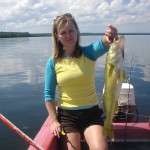 |
Roxane Bretzlaff, CNRL (designate and co-chair) |
Paul Kip, CNRL (alternate)
Oil & Gas II
Monty Moore, Husky (designate)
Alana Phelps, Imperial Oil Limited (alternate)
Provincial Government
Geoff Montgomery, Alberta Agriculture & Rural Development (designate)
Vacant (alternate)
Rural Municipal Government
Don Sinclair, MD of Bonnyville (designate)
Wanda Austin, County of Lac La Biche (alternate)
Urban Municipal Government
Nestor Kunec, Town of Bonnyville (designate)
Duane Lay, City of Cold Lake (alternate)
Watershed Stewardship Group
Brian Deheer, Stewards of Lac La Biche Watershed (designate)
Katlyn Macdonald, Moose Lake Watershed Association (alternate)
